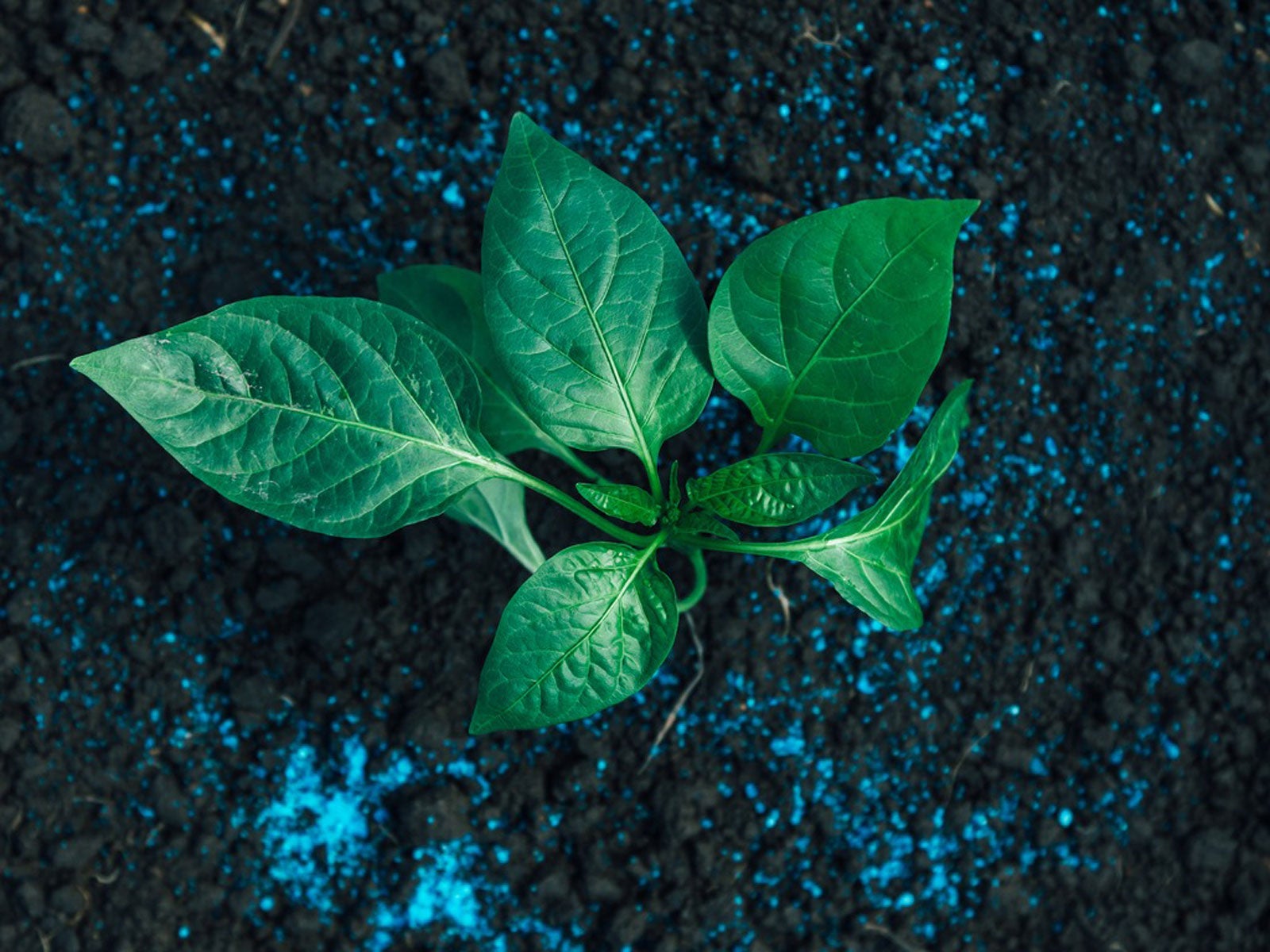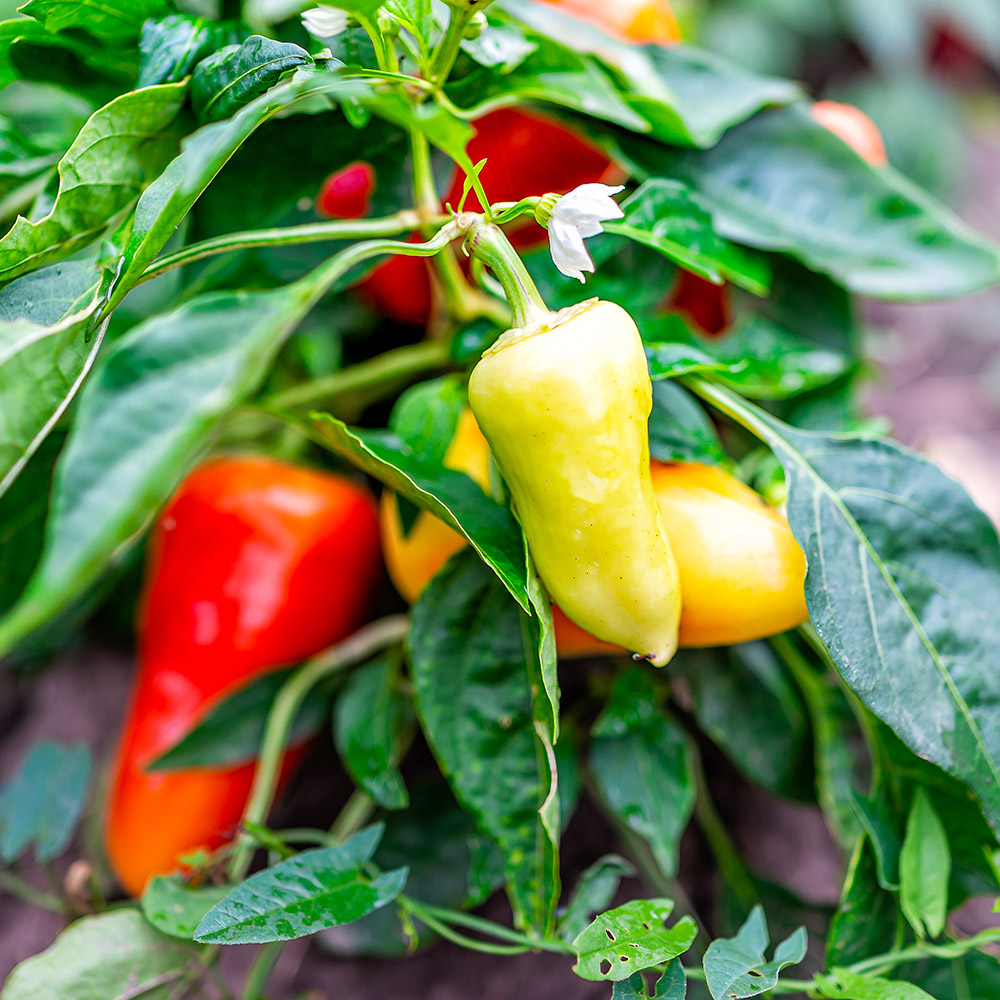Organic Vs. Synthetic Fertilizers: Which Is Best for Supporting Healthy And Balanced Pepper Plants?
In the world of supporting healthy and balanced pepper plants, the choice in between natural and synthetic plant foods stands as a crucial choice with far-reaching ramifications. While both alternatives aim to provide necessary nutrients to sustain plant development, the subtleties of their influence on the dirt, plant health, and the setting stimulate a debate that echoes throughout the horticulture community. Comprehending the distinctive benefits and prospective mistakes of each plant food kind is vital for pepper farmers seeking to optimize their returns while maintaining an eco-conscious and lasting strategy.
Advantages of Organic Plant Foods
Organic fertilizers supply a lasting and environmentally-friendly strategy to nourishing pepper plants, giving necessary nutrients without the use of synthetic chemicals. These all-natural fertilizers are stemmed from natural sources such as compost, manure, bone meal, and seaweed, promoting soil health and wellness and biodiversity. Unlike synthetic plant foods, natural alternatives release nutrients slowly, ensuring a stable and well balanced supply for pepper plants to flourish.
One substantial advantage of organic fertilizers is their ability to boost dirt structure and water retention. By enhancing soil health, natural plant foods promote useful microbial task, which assists in nutrient uptake by pepper plants. Additionally, organic fertilizers minimize the risk of chemical run-off, shielding water resources from pollution and guarding the environment.
In addition, organic plant foods add to long-lasting dirt fertility by promoting the development of advantageous soil microorganisms. These microorganisms assist break down organic matter, launching nutrients in a type that is quickly accessible to pepper plants. best fertilizers for peppers. By fostering a healthy soil environment, organic fertilizers support sustainable pepper cultivation techniques that benefit both plants and the setting
Disadvantages of Artificial Fertilizers
Synthetic fertilizers, in comparison to their organic equivalents, position different drawbacks when utilized to nurture pepper plants, influencing both plant health and wellness and ecological sustainability. One significant disadvantage of synthetic fertilizers is their propensity to leach nutrients from the soil promptly. This fast leaching can lead to nutrition inequalities in the soil, causing plants to deal with deficiencies or toxicities. Furthermore, artificial plant foods can harm beneficial soil microorganisms, such as earthworms and advantageous microorganisms, interfering with the soil environment's equilibrium.
Furthermore, the overuse of synthetic fertilizers can add to water contamination. Excess fertilizers not absorbed by plants can remove into water bodies, bring about eutrophication, where algae flowers deplete oxygen degrees in the water, damaging aquatic life. Artificial plant foods are commonly obtained from non-renewable resources, such as fossil gas, adding to carbon discharges and environmental degradation during their manufacturing.
Nutrient Absorption Contrast
When comparing synthetic and organic fertilizers in terms of nutrient absorption, organic plant foods have the benefit of providing a much more balanced and slow-release source of nutrients. Organic fertilizers have a range of macro and micronutrients that are not only useful for the plants however additionally promote healthy and balanced dirt microbial activity, which helps in nutrient uptake.
Additionally, organic plant foods boost soil structure and water retention capacity, permitting pepper plants to accessibility nutrients much more effectively. This enhanced dirt high quality promotes origin advancement, allowing better nutrient absorption. Synthetic plant foods, although initially enhancing plant development because of their resource high nutrient focus, may prevent long-term nutrient absorption by derogatory soil wellness over time.
Ecological Influence Factors To Consider

On the other hand, synthetic plant foods, although typically even more concentrated and immediately readily available to plants, can have harmful impacts on the atmosphere otherwise used properly (best fertilizers for peppers). Their production requires high energy inputs, causing greenhouse gas emissions and adding to climate change. Furthermore, the overflow of excess artificial fertilizers can pollute water sources, causing eutrophication and damaging water ecological communities.
Best Fertilizer Practices for Peppers
When feeding pepper plants, maximizing nutrient uptake and reducing environmental impact are essential considerations. To accomplish this, it is necessary to follow best plant food practices tailored to the specific demands of pepper plants. One vital technique is to carry out a soil examination before applying any kind of plant foods. This examination can identify the pH degree of the soil and recognize any nutrient deficiencies, assisting you in picking the most appropriate plant food solution.
Another crucial technique is to fertilize pepper plants at the appropriate time. Normally, peppers gain from getting plant food at planting and after that once more when they start to blossom. Over-fertilizing can lead to nutrition discrepancies and hurt the plants, my website so it is important to comply with recommended application prices.
In addition, selecting a well balanced fertilizer with an NPK proportion that fits pepper plants' requirements is essential. Organic fertilizers, such as garden compost or manure, can be excellent selections as they launch nutrients slowly and boost soil structure in time. Synthetic plant foods can offer a quick nutrient increase when required. Inevitably, combining natural and artificial plant foods carefully can assist support healthy pepper plants while minimizing environmental influence.
Conclusion

Organic plant foods use a lasting and environmentally-friendly method to nourishing pepper plants, giving vital nutrients without the usage of artificial chemicals. Unlike artificial fertilizers, organic options launch nutrients gradually, making certain a well balanced and constant supply for pepper plants to grow.
Synthetic fertilizers, in comparison to their natural equivalents, position various disadvantages when used to nurture pepper plants, impacting both plant wellness and ecological sustainability. When comparing artificial and natural fertilizers in terms of nutrient absorption, natural plant foods have the advantage of offering a much more well balanced and slow-release resource of nutrients.Furthermore, organic fertilizers enhance dirt framework and water retention capacity, enabling pepper plants to access nutrients more effectively.
Comments on “Discover the Best Fertilizers for Peppers: Essential Nutrients for Prospering Plants”